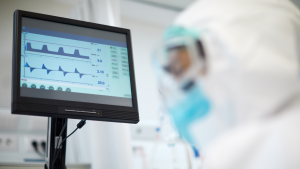
Here Are the Top Research Skills Life Science Employers Are Looking For in 2023
By Sarah Ellinwood
with contributions by Mark Nardone, Chris Frew, Sean Rae, Laura Frew, Jeff Caskey, and Heather Mudrick
February 9, 2023
If you have lab experience and are looking to break out into industry or biotech, chances are you might be wondering what skills will make you competitive.
BioBuzz consulted with our colleagues, our expert recruiters at our sister company, Workforce Genetics, as well as perused scientist job listings to see what technical skills are in high demand.
Cell Culture
Cell culture is perhaps one of the most critical skills to know if you’re looking to pursue a bench life science role. It’s also the core foundation of many of the techniques listed below.
Now, of course, saying you’re an expert in “cell culture” doesn’t really mean much. How specific do you need your expertise to be? What types of cells should have experience with?
It can get pretty granular pretty quickly. Each cell type has its particular quirk – are they adherent or in suspension? What type of media do you need to use, and how do you supplement? How sensitive are they to being confluent? Do they prefer if you play Shakira on the lab radio, or Lady Gaga? And yes…some researchers are that superstitious.
No matter the cell type you work with, one of the core skills is being able to manipulate and handle cells while avoiding contamination.
Do you know how to operate in a Biosafety Cabinet? Are you able to get your cells off the bottom of a culture flask, put them into a conical tube, count them, split them, and put them into a new vessel without introducing an unwanted guest? Do you generally know how to determine whether your cultures are healthy or unhealthy (hint: yellow media = usually bad).
If you know these basics, chances are you’ll be able to learn and adapt to whatever type of cell the company throws your way.
As for cell types, many companies seem to have an interest lately in T cells, B cells, and stem cells, especially with the continuing rise of cell therapies. That said, note what we said above – if you haven’t worked directly with T cells, don’t let that deter you from applying – chances are you can catch on.
In vivo Animal Work
Like cell culture, animal work is a core part of drug development. Mouse models are perhaps the most widely used models in preclinical work, gradually moving up the chain to rats, guinea pigs, and eventually to non-human primates.
While each company is going to be at a different stage of development, chances are high that if an employer is looking for in-house animal skills they’re going to be looking for mouse work, especially if it’s early-stage biotech.
Experience could include:
- General animal management
- Drug dosing
- Xenograft models (more so for cancer research)
- Tissue/organ extraction and processing
- PK/PD analysis
- Efficacy analysis
It’s ideal if you have experience in all of these skills, but we know different research areas have different needs. Even if you only have experience in animal management and tissue/organ extraction, that’s still very much valuable.
Flow Cytometry
When it comes to analyzing cell populations and surface protein expression, there’s no better tool than a flow cytometer.
For research positions, most companies are looking for someone who is not only able to run the machine, but is able to prepare samples and analyze data. And the more colors you know how to juggle at one time, the better.
A few other things to consider:
- Do you know how to optimize your antibodies and select the appropriate colors, especially for a multicolor experiment?
- Do you know how to tinker with the parameters on the flow cytometer to ensure you’re looking at your desired cell population?
- Do you know how to draw gates appropriately and what to look for?
- Are you able to determine what constitutes high-quality data vs. needing to run your experiment again?
An additional note – while having cell sorting experience is certainly a bonus, many positions seem to be more interested in basic flow analysis as a requirement.
CRISPR
CRISPR completely changed the game in gene editing – so much so that scientists Jennifer Doudna and Emmanuelle Charpentier were awarded the Nobel Prize in Chemistry in 2020.
CRISPR’s value can be seen at all levels of drug discovery and development, from knocking out genes in cell lines and mouse models to developing gene therapies that could correct disease-causing mutations in someone’s genetic code.
Mark Nardone, Biotechnology Program Manager at Montgomery College and Director/Cofounder of Bio-Trac, also noted CRISPR’s popularity. “On the research side, I would say in the past six to seven years, Single Cell RNA-Seq and the Gene Editing with CRISPR-related Bio-Trac workshops have had the highest demand. These are cutting edge techniques that are front and center in many research labs, and we attribute this growth to the development of the methodology, technology and software advancements and adaptation by the scientific community. In 2014, there were 600+ CRISPR related research articles published, in 2022, over 7,600 articles were published (source: PubMed).”
ELISA
The good ol’ ELISA – a tried and true method of quantifying proteins in everything from serum to supernatants and from cell lysates to plasma.
In terms of specifics – you should generally know how to perform an ELISA assay and analyze the data. Don’t pay too much mind to which specific type of ELISA – while there are inherent differences, the assay is fairly straightforward compared to some of the other skills mentioned here.
Western Blot
I’m sorry….I wish it wasn’t true either. But yes – Western blots are definitely a valuable skill to know, and still considered one of the core methods people use to quantify protein levels.
Chances are if you’ve done more than 10 Western blots, you’ll have the baseline experience employers are generally looking for…because unless you’re extremely lucky you won’t come out unscathed from doing a Western. There’s a reason there’s a whole Twitter account talking about Western woes. Having experience in handling proteins, loading your wells correctly, optimizing antibodies, and quantifying your bands are key.
Protein Purification
Whether you’re collecting antibodies from a cell culture sample or bustin’ up bacteria, protein purification is another attractive skill that employers are looking for.
Of course, just like with most techniques there are many ways to skin a cat when it comes to protein purification, from small-scale purification to purifying on a column by hand to using an FPLC to do the dirty work for you. At a company, you’ll likely be relying more on the latter.
While the samples and techniques wildly differ, there are inherent similarities between them that are core to the principles of purification. First, you have to understand the in’s and out’s of your protein of interest to figure out the best way to purify. Do you need to molecularly engineer a tag on your protein, or can you purify the native form? What preparations do you need to do to ensure the protein doesn’t crash out of solution or end up in a wonky structure with different properties? How do you assess whether you got the protein you were looking for?
PCR
Chances are you probably have some experience doing PCR, as it’s a core molecular biology technique. For many, basic PCR is one of the first skills you might learn when you start in a research lab.
For life science jobs, if they’re looking for PCR skills chances are they’re looking for a specific kind, which should be indicated in the job description. This could include qPCR, RT-PCR, ddPCR, etc.
The degree to which you’ll need specific PCR skills will vary – if you’re planning to work more on the cell therapy side of the spectrum you likely won’t need this skillset as much. If you’re working on the molecular biology, side, though, you can probably bet that they’ll be looking for some kind of PCR (and cloning) experience.
Bioinformatics and Computational Biology/Chemistry
Being able to handle and analyze large datasets has always been a highly attractive skill, and in recent years that demand has continued to grow.
Biotech companies around the nation are leaning more on computational software and AI to do early-stage R&D work. Look at any biotech discovery platform technology, and we’re willing to wager that most of them encompass some sort of computational/prediction step.
Further, we’re seeing a transformation in the way we think about and perform clinical trials, largely fueled by -omics technology, real-world data, electronic health records, and wearables. We’re generating and collecting data at unparalleled rates – someone has to know how to parse through and think about it.
Having a computational background is a huge perk for your resume. Don’t fret if you don’t have years of bioinformatics experience or manage large datasets on the daily, though. Having general experience in statistical software programs such as “R” and/or knowing a scripting language such as Python is also immensely valuable for many positions and will serve you well.
Some Closing Thoughts
You might be at the end of this article and hyperventilating because you’re not a protein-purifying, Western blot-slinging cell culture fanatic who uses R to analyze huge data sets in their sleep.
Take a deep breath – you do not need to be a jack-of-all-trades and know all the techniques above to land a good research position at a biopharma or biotech. It’s more important to have a deep understanding of a few techniques rather than a shallow understanding of many, so take some time to dive deep and learn the principles behind what you’re doing.
And if you have a technique gap that you really want to fulfill, seek out outside opportunities to help you learn. Bio-Trac is one of our favorite programs offering in-depth, expert-taught workshops covering many of the techniques above. The NIH also offers a plethora of fantastic courses as well.
Stay tuned – we’ll be diving more into these techniques in future articles.
- About the Author
- Latest Posts
Sarah Ellinwood is BioBuzz’s Managing Editor. A scientist by training and a science communicator at heart, Sarah specializes in making complex concepts understandable, engaging, and exciting. She received her Ph.D. in molecular and cellular biology with a focus in infectious disease immunology from the University of Maryland and is passionate about all things related to scicomm, peer mentorship, and women in STEM.








